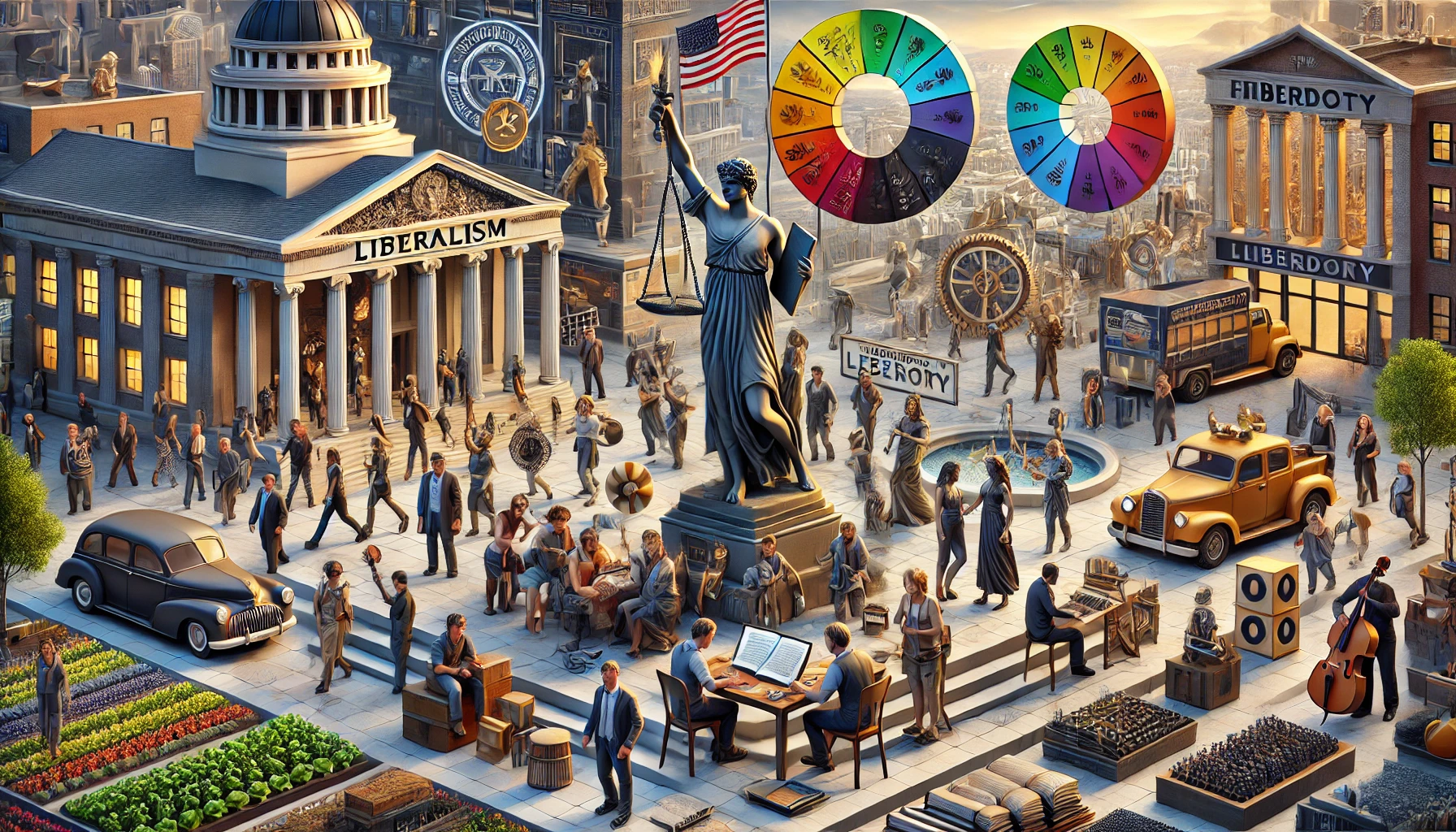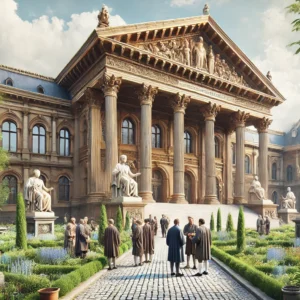Introduction
Liberalism is a political philosophy that prioritizes individual rights, freedom, reason, equality, and toleration. These principles form the foundation of liberal thought and have significantly influenced modern political systems. In this blog, we will explore each of these core elements in detail, examining their definitions, importance, and implications for society.
Individualism
Definition and Importance
Individualism is the belief in the moral worth of the individual. It emphasizes the rights and freedoms of the individual as paramount and views each person as an autonomous agent capable of making rational decisions. In liberal thought, the individual is considered the basic unit of analysis, and their rights must be protected above all.
The importance of individualism lies in its promotion of personal freedom and autonomy. It supports the idea that individuals should have the liberty to pursue their own goals and interests without undue interference from the state or other individuals. This principle underpins many liberal policies that advocate for personal responsibility, self-reliance, and the protection of individual rights.
Implications for Society
The implications of individualism for society are profound. It fosters a culture of independence and self-improvement, encouraging people to take control of their own lives and destinies. By prioritizing individual rights, liberal societies aim to create an environment where people can freely express themselves, innovate, and contribute to societal progress.
However, individualism also poses challenges. It can lead to a focus on personal gain at the expense of community and collective well-being. To balance this, liberal societies must ensure that individual freedoms do not infringe upon the rights of others and that social policies are in place to support those who may struggle to thrive independently.
Freedom
Concepts of Liberty
Freedom, or liberty, is a central tenet of liberalism. It encompasses two main concepts: negative liberty and positive liberty. Negative liberty refers to the absence of external constraints or interference, allowing individuals to act according to their own will. This concept is captured by the idea that “freedom is the right to be left alone.”
Positive liberty, on the other hand, is the capacity to act upon one’s free will and achieve one’s potential. It involves creating conditions that enable individuals to pursue their goals and aspirations. Positive liberty often requires state intervention to remove barriers and provide opportunities for all individuals.
Freedom Under the Law
Freedom under the law is the principle that individuals should be free to pursue their interests within the framework of the law. This means that while individuals have the right to act freely, their actions must not infringe upon the rights and freedoms of others. Laws are designed to protect individual liberties and ensure that society functions harmoniously.
In liberal societies, the rule of law is fundamental. It ensures that all individuals, including those in positions of power, are subject to the same legal standards. This principle prevents arbitrary rule and protects individuals from abuse of power, thereby safeguarding their freedoms.
Reason and Rationality
Role of Human Reason
Reason and rationality are highly valued in liberal thought. The role of human reason is to enable individuals to think critically, make informed decisions, and engage in rational discourse. Liberalism trusts in the capacity of human intellect to solve problems, advance knowledge, and improve society.
Reason is seen as the foundation for developing just laws, effective policies, and ethical norms. By encouraging reasoned debate and evidence-based decision-making, liberalism promotes a more enlightened and progressive society.
Belief in Progress
Liberalism holds a strong belief in progress—the idea that society can improve over time through reason, science, and innovation. This belief is rooted in the Enlightenment, which emphasized the power of human intellect and the potential for continuous improvement.
Progress in liberal thought is not just about technological or economic advancement but also about social and moral development. It involves expanding human rights, increasing access to education, reducing poverty, and enhancing the overall quality of life. The belief in progress motivates liberal societies to strive for betterment and to address social injustices and inequalities.
Equality and Toleration
Foundational Equality
Foundational equality, or equality of status, is the principle that all individuals are inherently equal in worth and should be treated equally under the law. Liberalism advocates for equal rights and opportunities for all, regardless of race, gender, religion, or socioeconomic status.
This principle is enshrined in many liberal constitutions and legal frameworks, ensuring that discrimination is prohibited and that individuals have equal access to justice and public services. Foundational equality aims to create a level playing field where everyone can pursue their goals and aspirations.
Toleration and Pluralism
Toleration is a liberal principle that promotes the acceptance and coexistence of diverse beliefs, values, and lifestyles. It is based on the recognition that individuals have the right to their own moral and philosophical views and that society should respect and protect this diversity.
Pluralism, a related concept, is the acknowledgment and celebration of diversity within society. Liberalism encourages pluralism by supporting policies and practices that foster inclusivity and prevent discrimination. This principle is vital for maintaining social harmony and ensuring that all individuals feel valued and respected.
Conclusion
The elements of liberalism—individualism, freedom, reason, equality, and toleration—form the foundation of modern democratic societies. By prioritizing individual rights and freedoms, promoting rational discourse, and striving for equality and progress, liberalism seeks to create a just and prosperous society where everyone has the opportunity to thrive. Understanding these principles is crucial for students of politics, as they provide a framework for analyzing contemporary political and social issues and for appreciating the values that underpin liberal democracies.




